Search results
Projects
Aesthetics, Politics and Histories: The Social Context of Art
AAANZ Conference 2018
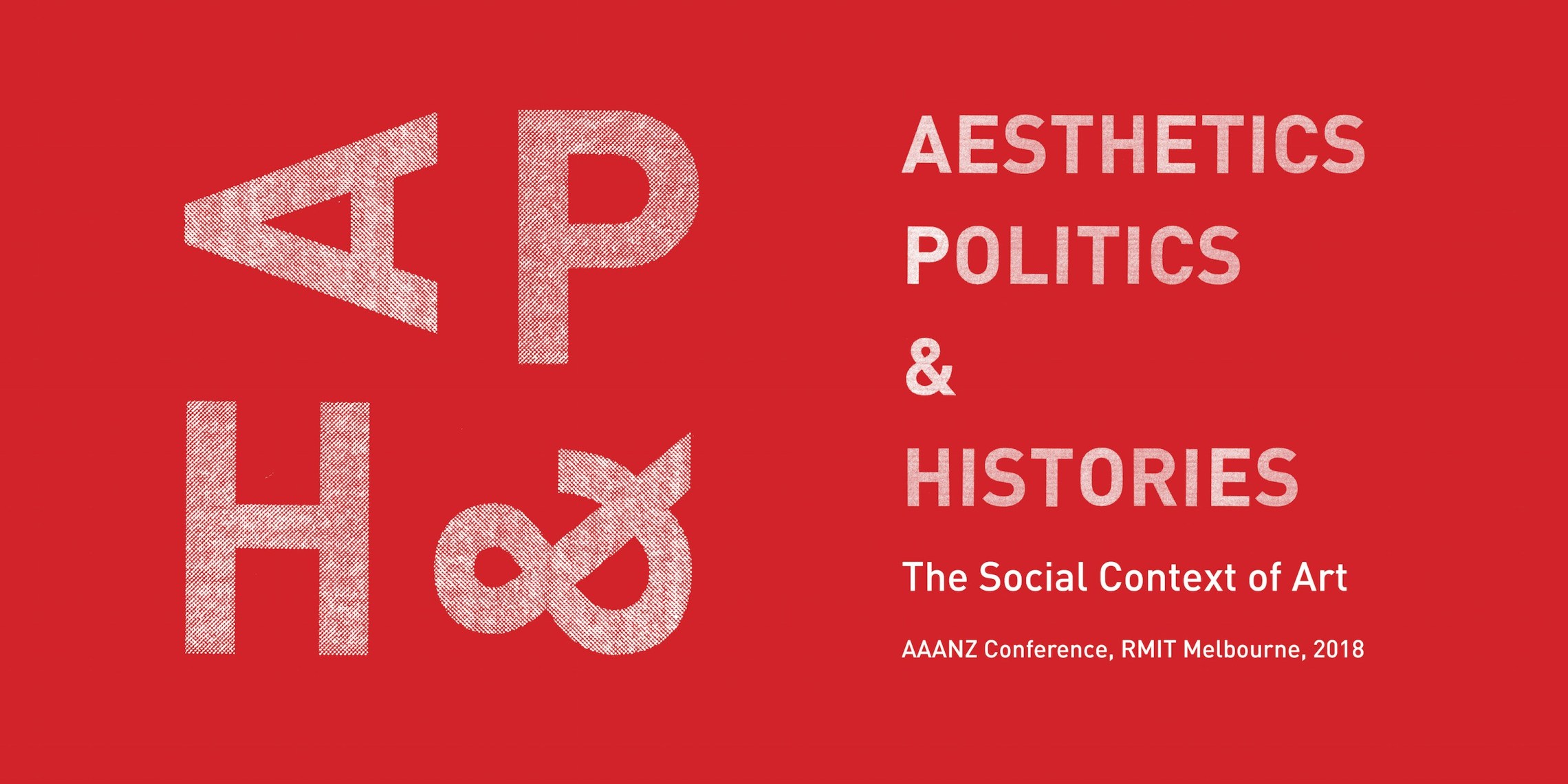
The 2018 AAANZ conference opens critical dialogue on the histories of art by examining the social contexts of aesthetics and politics. Bringing together art historians, theorists, curators, critics, and artists from across the region, the conference offers a stimulating four-day program of panels and papers, publication prizes, masterclasses and encounters with Melbourne’s vibrant arts sector with a parallel artistic program to be announced in coming months.
The conference features distinguished keynote speakers who will present expanded and alternative frameworks for understanding the diverse contexts and histories of art. Gabi Ngcobo (South Africa), curator of the 10th Berlin Biennale; Genevieve Grieves (AUS), Head of the First Peoples Department at Museums Victoria; and Ema Tavola (Fiji), independent curator are each engaged in critical curatorial practices aimed at democratising and decolonising art institutions and opening up art collections to alternative perspectives and narratives traditionally overlooked by museums and galleries. Art historian Professor Griselda Pollock (UK) from Leeds University is renowned for her postcolonial, queer feminist analysis of the visual arts, visual culture and cultural theory and research of trauma and the aesthetic in contemporary art. Curator and Associate Professor David Teh specialises in contemporary art in Southeast Asia.
The intersection of art and society is where differing worldviews and opposing epistemologies can meet and clash. Art offers a site for modelling political alternatives, questioning dominant discourses, and producing new historical narratives. Responding to the political, economic and environmental tensions of the present moment, the conference explores the relationship of the arts to social life throughout history. Located in a region marked by multiple and overlapping colonial and postcolonial histories and contemporary processes of globalisation, the conference aims to initiate critical dialogues that foreground the complex contexts, diverse practices, multiple histories, and contested trajectories of art.
KEYNOTE SPEAKERS
Genevieve Grieves is Worimi – traditionally from mid north coast New South Wales – and has lived on Kulin country in Melbourne for many years. She is an educator, curator, filmmaker, artist and oral historian who has accumulated nearly twenty years’ experience in the arts and culture industries. Some of her projects include the documentary, Lani’s Story; the video installation, Picturing the Old People; and, she was the Lead Curator of the internationally award-winning First Peoples exhibition at the Melbourne Museum. Genevieve has a role as a public intellectual and speaker and is undertaking her PhD in arts, memorialisation and frontier violence. She is Head of the First Peoples Department at Museums Victoria.
Gabi Ngcobo is the curator of the 10th Berlin Biennale. Since the early 2000s Ngcobo has been engaged in collaborative artistic, curatorial, and educational projects in South Africa and on an international scope. She is a founding member of the Johannesburg based collaborative platforms NGO – Nothing Gets Organised and Center for Historical Reenactments (CHR, 2010 – 14). NGO focusses on processes of self-organization that take place outside of predetermined structures, definitions, contexts, or forms. CHR responded to the demands of the moment through an exploration of how historical legacies impact and resonate within contemporary art.
Recently Ngcobo co-curated the 32nd Bienal de São Paulo, which took place in 2016 at the Ciccillo Matarazzo Pavilion in São Paulo, and A Labour of Love at Weltkulturen Museum, Frankfurt am Main in 2015⁄16) and travelled to the Johannesburg Art Gallery in 2017. She has been teaching at the Wits School of Arts, University of Witswatersrand, ZA, since 2011. Her writings have been published in various catalogues, books, and journals. She currently lives and works between Johannesburg and Berlin.
You can find out more about the event here.
If you would like to get involved with this project, fill out the form below or reach out to project leaders via the contact info provided alongside each bio.
People
Marnie Badham
Senior Research Fellow/ Senior Lecturer
School: School of Art
With a twenty-five-year history of art and social justice practice Australia and Canada, Marnie’s research sits at the intersection of socially engaged art, community-based research methodologies and the politics of cultural measurement. Marnie is currently focused on a series of creative cartographies registering emotion in public space; expanded curation projects on the aesthetics and politics of food; and a book project The Social Life of Artist Residencies: connecting with people and place not your own. Marnie is Senior Research Fellow at the School of Art following the prestigious award of Vice Chancellor’s Postdoctoral Research Fellow at RMIT University. Marnie co-leads the Cultural Value Impact Network and is acting Leader for CAST Contemporary Art and Social Transformation research group.
Daniel Palmer
Associate Dean
School: School of Art
Daniel Palmer is Associate Dean of Research and Innovation in the School of Art at RMIT University.
Daniel Palmer’s research and professional practice focuses on contemporary art and cultural theory, with a particular emphasis on photography and digital media. Prior to joining RMIT in 2018, Palmer was Associate Dean of Graduate Research and Associate Professor in the Art History & Theory Program at Monash Art, Design & Architecture. He also has a long association with the Centre for Contemporary Photography in Melbourne, first as a curator and later on the board of management.
Palmer’s book publications include Photography and Collaboration: From Conceptual Art to Crowdsourcing (Bloomsbury 2017); Digital Light (Open Humanities Press, 2015), edited with Sean Cubitt and Nathaniel Tkacz; The Culture of Photography in Public Space (Intellect 2015), edited with Anne Marsh and Melissa Miles; Twelve Australian Photo Artists (Piper Press, 2009), co-authored with Blair French; and Photogenic (Centre for Contemporary Photography, 2005). His scholarly writings on photography and contemporary art have appeared in journals such as Photographies, Philosophy of Photography, Angelaki, Reading Room and the Australian and New Zealand Journal of Art. Palmer has also published over sixty catalogue essays and fifty art reviews since 1997, in art magazines including Art and Australia, Photofile and Frieze.
Palmer has been the recipient of various awards and grants, and has been Chief Investigator on multiple ARC projects, including the ARC Discovery Project ‘Genealogies of Digital Light’ (2008 – 11) with Sean Cubitt and Les Walkling; an ARC Linkage Project ‘Photography as a Crime’ (2009 – 2012) with Anne Marsh, Melissa Miles, Mark Davison and the Centre for Contemporary Photography; and the ARC Discovery Project ‘Curating Photography in the Age of Photosharing’; (2015 – 2017) with Martyn Jolly. Palmer is currently a researcher on the ARC Discovery Project ‘Digital Photography: Mediation, Memory and Visual Communication’ (2020 – 2022) with Scott McQuire, Nikos Papastergiadis, Sean Cubitt and Celia Lury.
Writers Immersion and Cultural Exchange
Changing the stories we tell and listen to
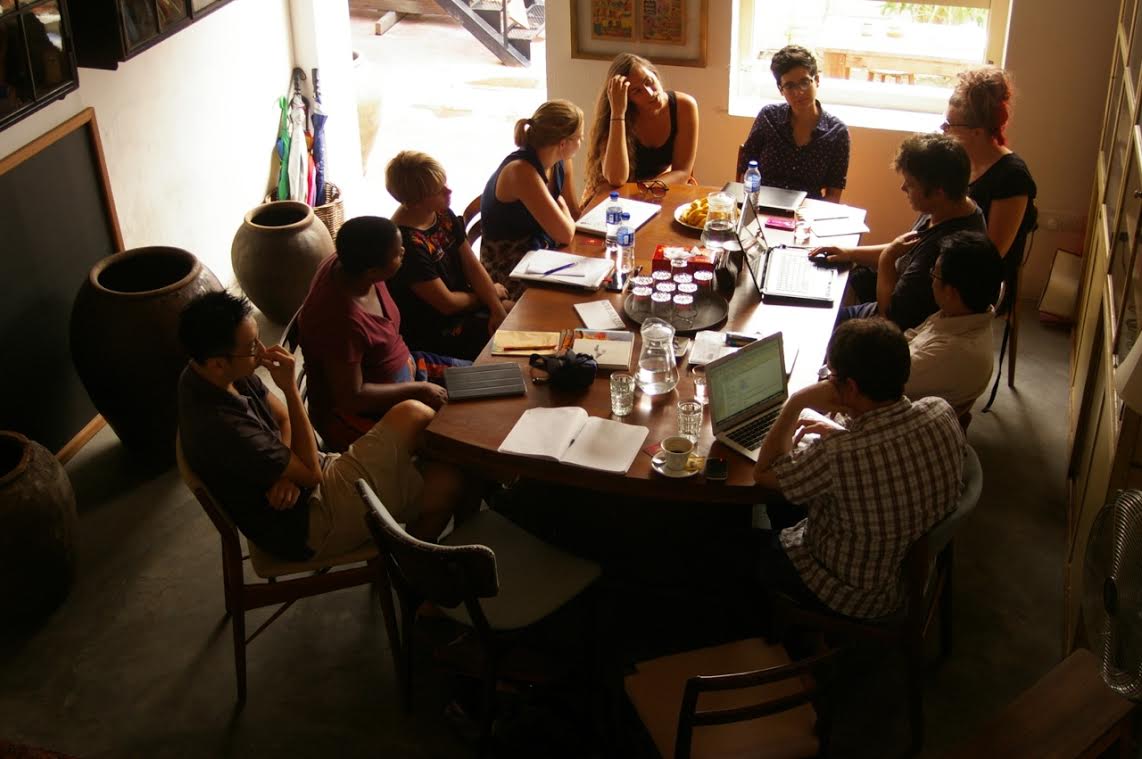
Perspectives shift and networks expand when writers step out of their comfort zone and into unfamiliar cultural spaces where they can connect and share ideas with other writers. Writers Immersion and Cultural Exchange (WrICE) program contributes to an Asia-Pacific community of writers in a collaborative way, influencing broader societal perspectives and changing the stories we tell and listen to. It provides a framework for intercultural and intergenerational dialogue — the exchange and furthering of knowledge, creativity, skills and cultural perspectives.
Visit the WrICE website.
If you would like to get involved with this project, fill out the form below or reach out to project leaders via the contact info provided alongside each bio.
People
Francesca Rendle-Short
Associate Professor and Associate Dean, Writing and Publishing
School: Media and Communication
+61 3 9925 9052
Personal website
francesca.rendle-short@rmit.edu.au
Francesca Rendle-Short is Associate Dean Writing and Publishing in the School of Media and Communication at RMIT University in Melbourne, Australia. She is co-founder of the non/fictionLab research group and co-director of WrICE (Writers Immersion and Cultural Exchange). She has a Doctor of Creative Arts from the University of Wollongong, was a recipient of an International Nonfiction Writers Fellowship to the University of Iowa, and was showcased in the Outstanding Field at Victoria College of the Arts, University of Melbourne.
Francesca Rendle-Short is an award winning novelist, memoirist and essayist. Her books include Bite Your Tongue, Imago, and The Near and The Far; also the forthcoming 100 Love Letters, and No Notes (This is writing). Her artwork is in the collection of the State Library of Queensland.
David Carlin
Professor of Creative Writing, Co-Director of the non/fictionLab, Co-Director WrICE
School: Media and Communication
9225 3934
Personal website
david.carlin@rmit.edu.au
David Carlin is a writer, creative artist and scholar. His books include The Abyssinian Contortionist, Our Father Who Wasn’t There, and (forthcoming) The After-Normal for Rose Metal Press, and 100 Atmospheres: Studies in Scale and Wonder for Open Humanities Press. David’s essays, plays, radio features, exhibitions, documentary and short films have won awards and featured at numerous international festivals. He co-edited a cross-cultural anthology of Asian and Australian writers, The Near and the Far (with Francesca Rendle-Short, Scribe 2016) and Performing Digital (Routledge, 2015), about the Circus Oz Living Archive project he led. Co-President of the NonfictioNOW Conference, the world’s leading conference in literary nonfiction, David is a Professor at RMIT University, Australia, where he co-directs WrICE and non/fictionLab.
Creative Ecologies
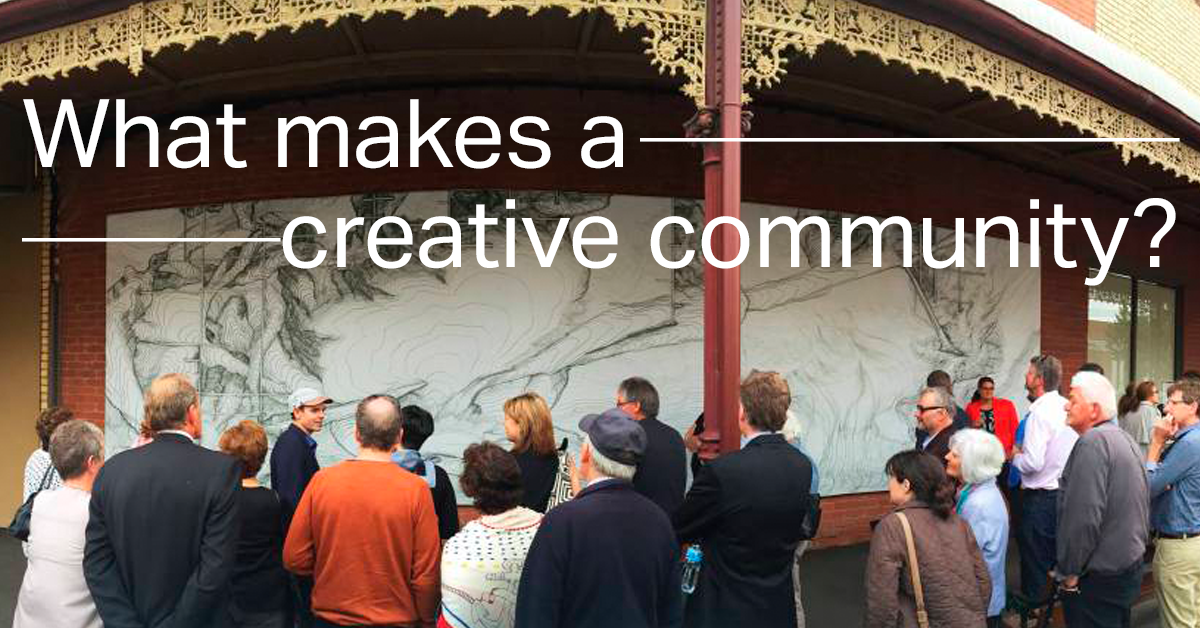
Creative Ecologies is a collaborative investigation into what makes Australia’s creative landscapes tick. The aim is to understand what it takes to build thriving creative communities and then develop tools to foster their growth.
The goal of the project is to develop a simple way of articulating the complex ways creative ecologies operate. Core to this will be highlighting connections to the wider society and demonstrating value beyond purely economic indicators. The long-term ambition of Creative Ecologies is to expand our understanding and appreciation of creative exertion – and have its central place in Australia’s national character recognised. It will do this by developing and raising awareness of a framework and resource for policymakers, practitioners and advocates. This will be a live, interactive visual map of the nation’s creative ecologies, combining data, case studies and avenues for connection across the sector.
The project began in late 2017 and the arising work and findings including a national survey, one-on-one consultations, interactive workshops were presented at the Engaging For Impact conference in February 2018. Creative Ecologies now has an expanded list of RMIT researchers on board
LEAD RESEARCHER
○Jan van Schaik, Senior Lecturer, School Architecture & Urban Design
SUPPORTING RESEARCHERS
○Marnie Badham, Vice Chancellor’s Postdoctoral Fellow, School of Art
○Bronwyn Coate, Senior Lecturer, Economics, Finance and Marketing
○Gretchen Coombs, Postdoctoral Fellow, DCP ECP
○Christine Phillips, Senior Lecturer, Architecture & Urban Design
○Professor Jason Potts, Economics, Finance and Marketing
○Noel Waite, Senior Lecturer, Communication Design
○ Professor Ellie Rennie, Digital Ethnography Research Centre
○Professor Mark Sanderson, Computer Science and Information Technology
You can find out more about CREATIVE ECOLOGIES here.
If you would like to get involved with this project, fill out the form below or reach out to project leaders via the contact info provided alongside each bio.
People
Jan van Schaik
Senior Lecturer
School: Architecture and Urban Design
Jan van Schaik is a practising architect at MvS Architects, a researcher and senior lecturer at RMIT Architecture & Urban Design, and a creative and cultural industries strategist at Future Tense. His is the leader of the ‘Culture and Society’ research stream, and a PhD superrvisor of established architects conducting post-professional reflective practice research. Jan is the founder of the WRITING & CONCEPTS lecture and publication series which reflects of the role that writing plays in visual arts practice. Jan is also one of the founders of Creative Ecologies„ a collaborative investigation into what makes Australia’s creative landscapes tick. The aim is to understand what it takes to build thriving creative communities and then develop tools to foster their growth.
Social Play Tool Kit
Encouraging social play and games literacies in the classroom.
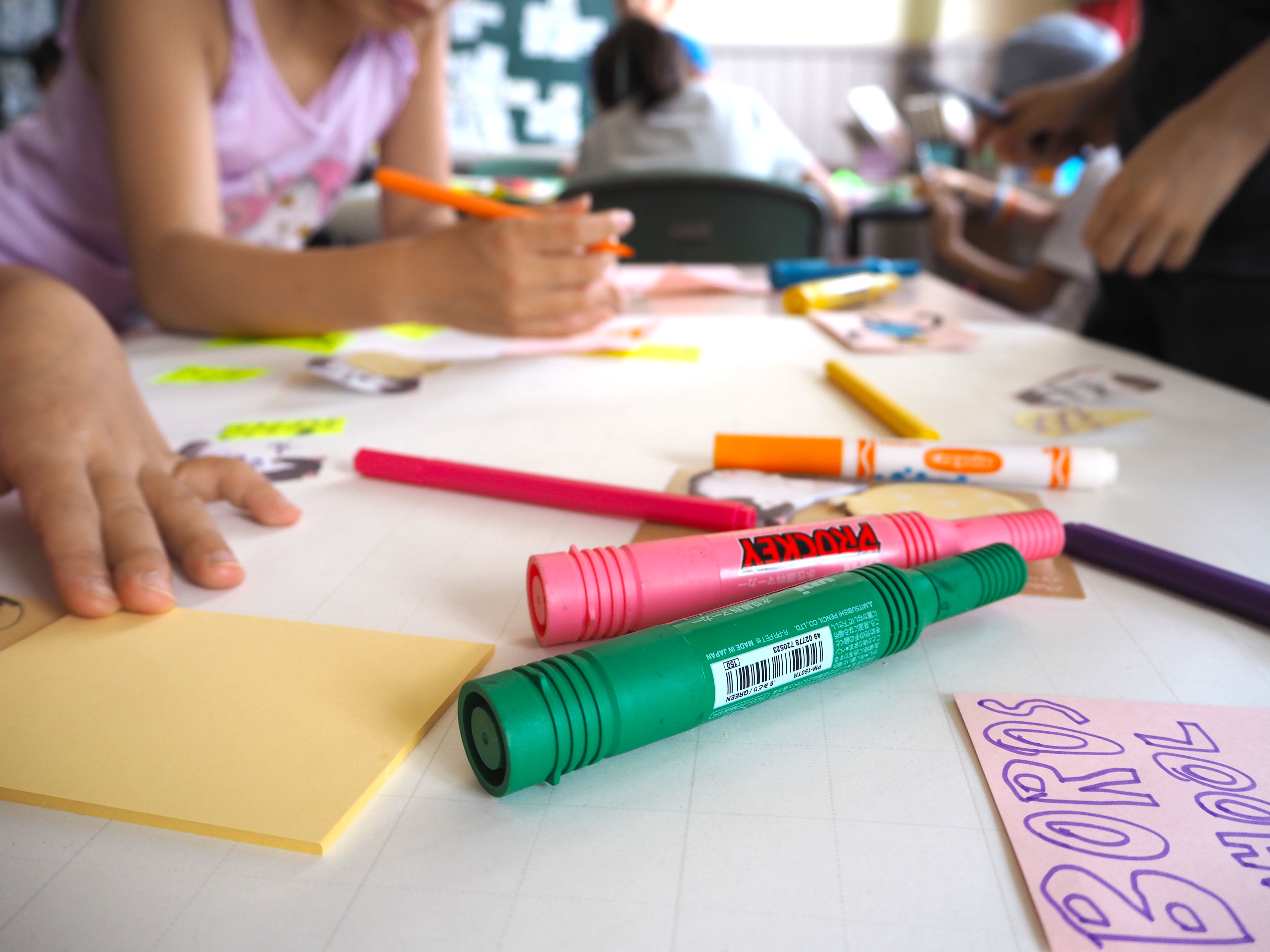
Play is a source of culture, a form of expression, and a creative way of engaging with the world. It is a crucial human ability for adaptation and expression.
In collaboration with our research partners and young people, we have developed a Social Play Tool Kit that encourages social play and game literacies in the classroom. Exploring socially-engaged gameplay and creativity across digital and material contexts, these tools are freely downloadable PDF’s for use in a variety of Primary School age learning environments.
INTRODUCTION TO THE SOCIAL PLAY PROJECT
If you would like to get involved with this project, fill out the form below or reach out to project leaders via the contact info provided alongside each bio.
People
Larissa Hjorth
Distinguished Professor and Director, Design and Creative Practice
School: Enabling Capability Platforms
Larissa Hjorth is a digital ethnographer, artist, Distinguished Professor and director of the Design & Creative Practice ECP platform at RMIT University. With Professor Heather Horst, she co-founded the Digital Ethnography Research Centre (DERC). Previously, Hjorth was Deputy Dean, Research & Innovation, in the School of Media & Communication (2013−2016). Hjorth served on the inaugural Australian Research Council (ARC) Engagement & Impact Pilot study assessment panel for humanities and creative practice.
Hjorth studies the socio-cultural dimensions of mobile media and play practices in the Asia-Pacific region with an emphasis on interdisciplinary, collaborative and cross-cultural approaches. She has published a dozen co-authored books, edited over a dozen Handbooks/Companions and has over 40 journal articles.
More recently, Hjorth’s work has become concerned with how we can bring creative, social and design solutions to the growing ageing populations and, in turn, how we might consider scenarios of what it means to die well. She is also studying how our “more-than-human” companions can teach us about new media in everyday life. Hjorth’s last book, Haunting Hands (Oxford Uni Press) looked at how mobile media is being deployed in situations of grief and trauma, her previous book explored how art practice can teach us new acumen into the climate change debate.
Hjorth’s books include Haunting Hands (with Cumiskey 2017), Screen Ecologies (with Pink, Sharp & Williams 2016), Digital Ethnography (Pink et al. 2016) Mobile Media in the Asia-Pacific (2009), Games & Gaming (2010), Online@AsiaPacific (with Arnold 2013), Understanding Social Media (with Hinton 2013), and Gaming in Locative, Social and Mobile Media (with Richardson 2014).
Understanding Roblox Play
We seek young Roblox players to interview!
We are seeking participants between the ages of 9 and 18 who play Roblox for one hour studies.
Roblox is a multiplayer online platform and game creation system. By enabling its users to playfully design and share their own games, as well as to play games created by others, Roblox attracts millions of young players each year. Despite its growing presence, very little research into Roblox play in Australia has taken place. So in this study, we aim to examine how young people incorporate Roblox play in their social and everyday lives. This is the first study to examine the social uses of Roblox play gaming in Australia, and with it, we aim to understand the Roblox phenomenon as a new model of social play within contemporary games culture.
Our study involves two methods of collecting data: Observation and/or Interview.
-
Observation
For half an hour, we observe individual participants as they play Roblox at home. We ask brief questions about how they interact with the game. With prior permission, we may photograph players or their screens as visual evidence to show exactly how participants are interacting with devices and screens. This is crucial in determining the tactile, gestural and haptic nature of their play. - Interview
For half an hour, we talk with participants about their game play. Topics covered in the interview with players may include the following:
• Do you play, or have you played other games in the past?
• Do you use Roblox as a social tool? If so, then how?
• Do you play Roblox with friend and/or family members?
• If you were to explain why Roblox matters to a non-player, what would you say?
You can choose to only do the interview and not the observation if you wish. All participation is entirely voluntary and completely anonymous. Your privacy is our concern.
Through this research, we hope to enrich community and policy understanding of the media literacies and social inclusion practices emerging in and around Roblox. We anticipate that this may inform media effects debates and heighten understanding of games as a core aspects of contemporary everyday practice.
You can find our more about the research here.
Want to be involved?
It’s easy. Just email the research contact Dr Hugh Davies:
hugh.davies@rmit.edu.au
If you would like to get involved with this project, fill out the form below or reach out to project leaders via the contact info provided alongside each bio.
People
Larissa Hjorth
Distinguished Professor and Director, Design and Creative Practice
School: Enabling Capability Platforms
Larissa Hjorth is a digital ethnographer, artist, Distinguished Professor and director of the Design & Creative Practice ECP platform at RMIT University. With Professor Heather Horst, she co-founded the Digital Ethnography Research Centre (DERC). Previously, Hjorth was Deputy Dean, Research & Innovation, in the School of Media & Communication (2013−2016). Hjorth served on the inaugural Australian Research Council (ARC) Engagement & Impact Pilot study assessment panel for humanities and creative practice.
Hjorth studies the socio-cultural dimensions of mobile media and play practices in the Asia-Pacific region with an emphasis on interdisciplinary, collaborative and cross-cultural approaches. She has published a dozen co-authored books, edited over a dozen Handbooks/Companions and has over 40 journal articles.
More recently, Hjorth’s work has become concerned with how we can bring creative, social and design solutions to the growing ageing populations and, in turn, how we might consider scenarios of what it means to die well. She is also studying how our “more-than-human” companions can teach us about new media in everyday life. Hjorth’s last book, Haunting Hands (Oxford Uni Press) looked at how mobile media is being deployed in situations of grief and trauma, her previous book explored how art practice can teach us new acumen into the climate change debate.
Hjorth’s books include Haunting Hands (with Cumiskey 2017), Screen Ecologies (with Pink, Sharp & Williams 2016), Digital Ethnography (Pink et al. 2016) Mobile Media in the Asia-Pacific (2009), Games & Gaming (2010), Online@AsiaPacific (with Arnold 2013), Understanding Social Media (with Hinton 2013), and Gaming in Locative, Social and Mobile Media (with Richardson 2014).
Hugh Davies
Postdoctoral Research Fellow
School: Games
Hugh Davies is an artist, curator and researcher of games and play. His practice explores histories of media devices and cultures of games in the Asia Pacific Region. Awarded a PhD in Art, Design and Architecture from Monash University in 2014, Hugh’s studies in game cultures have been supported with fellowships from Tokyo Art and Space, M+ Museum of Visual Culture and the Hong Kong Design Trust. Hugh is currently a postdoctoral research fellow at RMIT in Melbourne, Australia.
Doubting Writing/Writing Doubt
Expanded writing program

This project brought together writers of diverse disciplinary and creative backgrounds to explore new methodologies for arts writing and criticism in response to the exhibition On Vulnerability and Doubt at ACCA. Following a public call-out, that attracted over 60 applicants, ten writers were selected to participate in a series of workshops, a public readings event and to co-design a digital publication.
Doubting Writing/Writing Doubt took the exhibition themes of doubt and vulnerability as provocations from which to write about art. It built on the success of 2018’s Writing in the Expanded Field, which explores diversification in contemporary critical writing.
The project was a great success, attracting excellent applicants, high public interest, connections with the arts publishing industry, and firmly consolidating the partnership between non/fictionLab and ACCA.
Digital Publication
ACCA Program Page
Podcast of Public Readings Event
If you would like to get involved with this project, fill out the form below or reach out to project leaders via the contact info provided alongside each bio.
People
Lucinda Strahan
School: Media and Communication
Lucinda Strahan is a writer and researcher of expanded nonfiction. Lucinda’s own expanded writing practice spans journalism and arts criticism, auto-ethnographic and personal essaying, editing and publishing, and exploratory literary-visual methods. She is the currently Writer in Residence at Linden New Art, St Kilda and in 2017 was Writer in Residence Residence at Grey Projects, Singapore as part of her ongoing interest in interdisciplinary critical/creative writing practices. Lucinda is a Lecturer in the Professional Communication program in the School of Media and Communication.
Canadian & Australian Book Industries Conversation
Exploring new collaborative opportunities in publishing
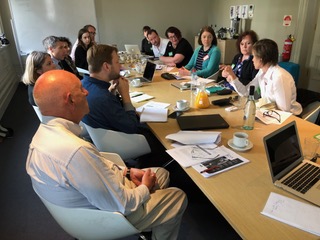
How healthy is the bookselling and publishing industry in Australia? And what are the key reasons for this state of wellbeing (or illness)?
Canadian and Australian Book Industries Conversation (CABIC) brings together leading academics and industry figures to explore themes important to Australian and Canadian authors, illustrators and publishers, including the importance of local content, the book industry policy climate, and regulatory changes and challenges.
If you would like to get involved with this project, fill out the form below or reach out to project leaders via the contact info provided alongside each bio.
People
Julienne Van Loon
Senior Research Fellow, Design and Social Context
School: Media and Communication
+61 3 9925 9564
RMIT staff profile
julienne.vanloon@rmit.edu.au
Dr Julienne van Loon is a Vice Chancellor’s Senior Research Fellow with non/fictionLab, and a leading Australian novelist and essayist. Her first novel, Road Story, won The Australian/Vogel’s award in 2005 and was shortlisted for the WA Premier’s Award for Fiction and the Commonwealth Writers’ Prize Best First Book Award (Asia and Pacific). She has held residencies at various international arts organisations and universities, including the University of Iowa, where she was sponsored by the Paul and Hauling Engle Fund to take part in the International Writing Program in 2017. van Loon co-edits the leading scholarly Creative Writing journal TEXT, and is a peer-assessor for the Australia Council for the Arts. Her forthcoming essay collection, The Thinking Woman, includes interviews with key women thinkers from the Australia, Europe and the United States. Her scholarly research interests include the role of play in research and creative practice.
COVID frontlines in Australia and New Zealand
Processes, Practices and Perceptions

Australia and New Zealand have each enjoyed a high degree of success in managing outbreaks of COVID 19. Both countries have been early adopters of mask use and contact tracing. The COVID travel bubble organised between Australia and New Zealand speaks to the cultural proximity of the two countries and the shared approaches in tackling the pandemic.
This study seeks to interview participants from across Australia and New Zealand to record their shifting perceptions towards the infrastructural changes and biometrics brought by COVID-19. Specifically, we want to enquire about people’s perceptions and practices of:
• Masks and other PPE use
• Contact tracing via apps, QR codes, pen and paper
• COVID testing and temperature monitoring
• Vaccinations
Our aim is to record the experiences and conditions of participants in New Zealand and Australia to discover how new technologies and practices add new layers of both work and technological awareness to daily routines. We seek to reveal ways of improving techniques of technological delivery and the lives of people that these processes affect.
We welcome all participants and are very keen to hear from a diverse representation of people. We especially welcome older people as well as frontline and essential workers; individuals who, to perform their roles, come into direct contact with the public.
To participate just let us know at the GET INVOLVED link at the bottom of this page.
You can find support with issues related to COVID here if you are in New Zealand, and here if you are in Australia.
PARTICIPANT INFORMATION AND CONSENT FORM
If you would like to get involved with this project, fill out the form below or reach out to project leaders via the contact info provided alongside each bio.
People
Larissa Hjorth
Distinguished Professor and Director, Design and Creative Practice
School: Enabling Capability Platforms
Larissa Hjorth is a digital ethnographer, artist, Distinguished Professor and director of the Design & Creative Practice ECP platform at RMIT University. With Professor Heather Horst, she co-founded the Digital Ethnography Research Centre (DERC). Previously, Hjorth was Deputy Dean, Research & Innovation, in the School of Media & Communication (2013−2016). Hjorth served on the inaugural Australian Research Council (ARC) Engagement & Impact Pilot study assessment panel for humanities and creative practice.
Hjorth studies the socio-cultural dimensions of mobile media and play practices in the Asia-Pacific region with an emphasis on interdisciplinary, collaborative and cross-cultural approaches. She has published a dozen co-authored books, edited over a dozen Handbooks/Companions and has over 40 journal articles.
More recently, Hjorth’s work has become concerned with how we can bring creative, social and design solutions to the growing ageing populations and, in turn, how we might consider scenarios of what it means to die well. She is also studying how our “more-than-human” companions can teach us about new media in everyday life. Hjorth’s last book, Haunting Hands (Oxford Uni Press) looked at how mobile media is being deployed in situations of grief and trauma, her previous book explored how art practice can teach us new acumen into the climate change debate.
Hjorth’s books include Haunting Hands (with Cumiskey 2017), Screen Ecologies (with Pink, Sharp & Williams 2016), Digital Ethnography (Pink et al. 2016) Mobile Media in the Asia-Pacific (2009), Games & Gaming (2010), Online@AsiaPacific (with Arnold 2013), Understanding Social Media (with Hinton 2013), and Gaming in Locative, Social and Mobile Media (with Richardson 2014).
Hugh Davies
Postdoctoral Research Fellow
School: Games
Hugh Davies is an artist, curator and researcher of games and play. His practice explores histories of media devices and cultures of games in the Asia Pacific Region. Awarded a PhD in Art, Design and Architecture from Monash University in 2014, Hugh’s studies in game cultures have been supported with fellowships from Tokyo Art and Space, M+ Museum of Visual Culture and the Hong Kong Design Trust. Hugh is currently a postdoctoral research fellow at RMIT in Melbourne, Australia.
Ingrid Richardson
Professor
School: Media and Communication
Professor Ingrid Richardson has been teaching, supervising and researching in the fields of digital media, mobile media and games for over twenty years. She has a broad interest in the human-technology relation and has published widely on the phenomenology of games and mobile media, digital ethnography and innovative research methods, the relation between technology use and wellbeing, and the cultural effects of urban screens, wearable technologies, virtual and augmented reality, remix culture and web-based content creation and distribution. Ingrid has led or co-led 14 funded research projects, the most recent being an ARC DP [Games of Being Mobile] with Larissa Hjorth. She is contributing co-editor of Studying Mobile Media (Routledge, 2011) and co-author of Gaming in Social, Locative and Mobile Media (Palgrave, 2014), Ambient Play (MIT, 2020), Understanding Games and Game Cultures (Sage, 2020), Exploring Minecraft: Ethnographies of Play and Creativity (Palgrave, forthcoming), and Mobile Media and the Urban Night (Palgrave, forthcoming). Ingrid brings ten years’ experience in university-level HDR management and during this time has actively championed and supported creative methods and practice-led postgraduate research. Over the past five years she has also developed a passion for teaching critical web literacy skills to undergraduate students across all disciplines.
Mark Andrejevic
Professor
School: Media, Film, and Journalism
Mark Andrejevic (Professor, School of Media, Film, and Journalism, Monash University) contributes expertise in the social and cultural implications of data mining, and online monitoring. He writes about monitoring and data mining from a socio-cultural perspective, and is the author of three monographs and more than 60 academic articles and book chapters. He was the Chief Investigator for an ARC QEII Fellowship investigating public attitudes toward the collection of personal information online ($390,000; 2010 – 2014).
Andrejevic has experience conducting both quantitative and qualitative research and is experienced in the focus group and interview methodologies. His work on the personal information project, for example, generated a book, 11 articles and book chapters, and a report on Australian attitudes toward online privacy that was launched by the Federal Privacy Commissioner.
Ruth De Souza
VC Research Fellow
School: School of Art
Dr Ruth De Souza (FACN) is a Vice-Chancellor’s Fellow at RMIT, based in the School of Art and DCP Research Platform. She is a nurse, academic and a community-engaged researcher in gender, race, health and digital technologies. Ruth’s Fellowship will engage health professionals in finding new ways to understand, co-design and implement sustainable cultural safety initiatives in a range of health contexts in response to health inequities.
Prior to moving to Australia in 2013, Ruth worked at AUT University where she taught in the School of Nursing, led the Bachelor of Health Promotion, and was a Senior Research Fellow at the Centre for Asian and Migrant Health Research. Since her arrival in Australia, Ruth has undertaken a wide range of roles, including leading an undergraduate nursing program at Monash University’s Berwick campus; spearheading a unique community-engaged joint research appointment with North Richmond Community Health exploring how wearables and other digital technologies are perceived by people from culturally and linguistically different backgrounds and co-ordinating an interdisciplinary Data Systems and Society Research Network across the University of Melbourne. Ruth has also investigated the applicability of cultural safety in Australia, working closely with The Congress of Aboriginal and Torres Strait Islander Nurses and Midwives (CATSINaM), presenting at their National Professional Development Conferences and delivering training on cultural safety. She has also undertaken a two-year cultural safety project with cohealth (a not-for-profit community health organisation) and Our Watch who work for the primary prevention of violence against women and their children.
Creative Care
Exploring creative practice and teaching in health and wellbeing
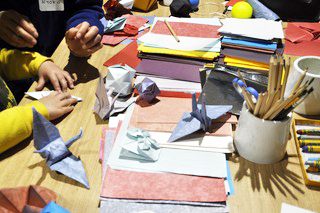
Creative Care researchers and students engage in creative research that intersects with health, wellbeing and the human lived experience. Creative Care projects are undertaken through diverse mediums; they are site specific social practices. The collaborative and interdisciplinary research is realised through exhibitions, performances, events, publications, or undertaken within health and social care settings, and with industry partners.
In August 2019, Creative Care presented Hand Festival at Peter MacCallum Cancer Centre in Melbourne. The team, along with Professor Rebecca Hilton (University Arts Stockholm), organised the social practice choreographed event designed with a focus on the hand for trust and intimate hand activities. Seventeen artists, colleagues, student nurses from RMIT, and Peter Mac staff and patients participated in hand drawing, origami, hand massages, wax modelling, mbira, knitting, cat’s cradle and more. Later that month, the team ran Hands + Mouth: Boundaries of the Body, an experimental and participatory “world cafe” event which explored the boundaries of the body at the end of life (touch, embodiment, gestures and more) through roving conversations about end of life scenarios with a focus on death and dying, ageing and illness and how they intersect with culture, the senses and place.
You can find out more about the Creative Care project on the CAST Website.
If you would like to get involved with this project, fill out the form below or reach out to project leaders via the contact info provided alongside each bio.
People
Keely Macarow
Associate Professor
School: School of Art
Keely Macarow is Coordinator of Postgraduate Research in the School of Art at RMIT. Keely’s research is focused on socially engaged art and the nexus between creative arts, social justice, health and wellbeing, and social and natural science. Currently, Keely is a member of The Untitled (a collective of artists, urban and graphic designers, architects and housing researchers based in Melbourne and Stockholm) who produce creative works, publications and interventions in Australia and Sweden to advocate for Homefullness (rather than homelessness). Her film, video and exhibition projects have been presented in Australia, the UK, the US, Germany, Belgium, Austria, Sweden, Hungary, France, Scotland and Denmark.
Cultural Impact Workshop Series
Measuring the Real-World Benefits of Creative Practice Research
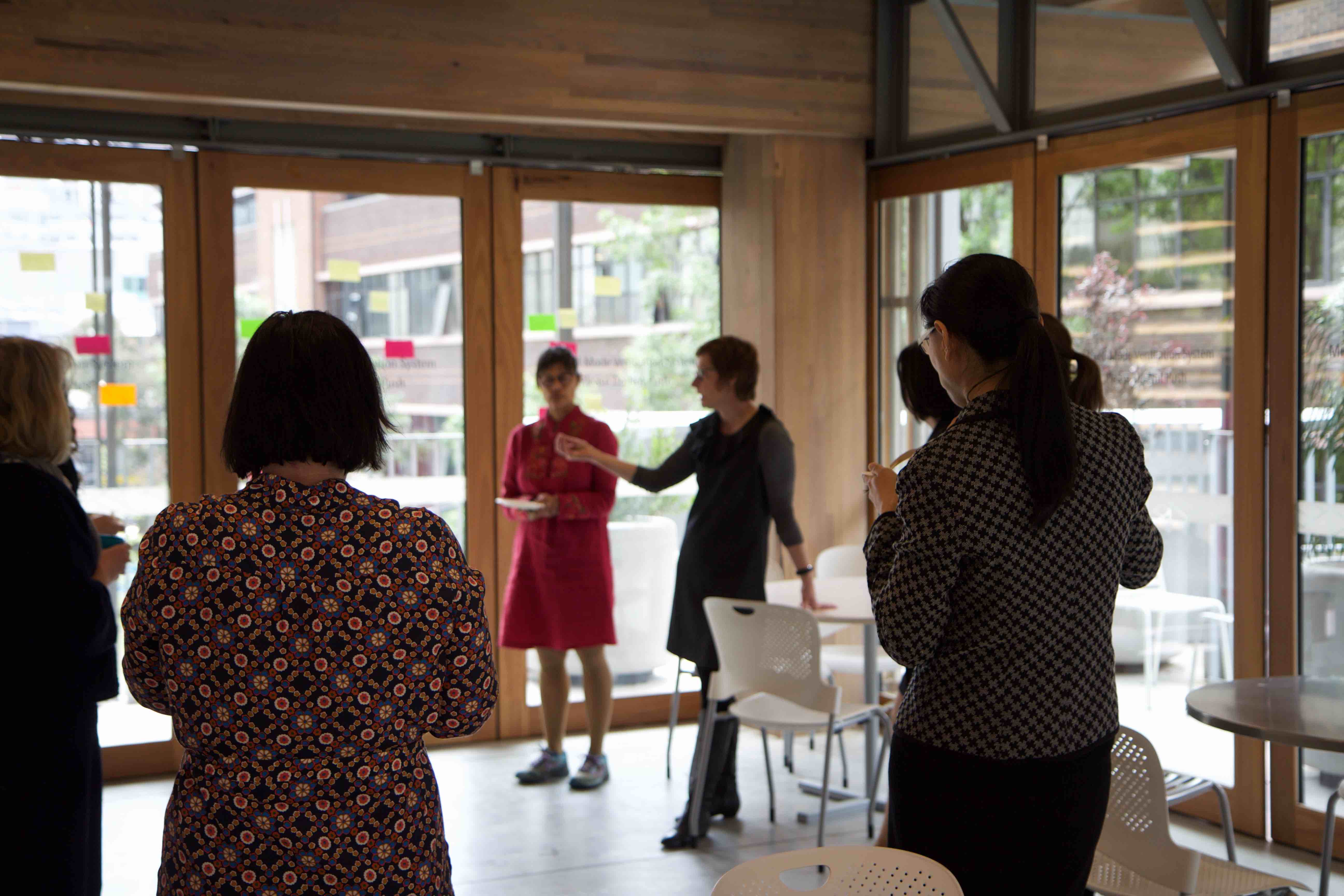
In this series of hands-on workshops, leaders in the field demonstrated how to engage and translate practice and research into real-world benefits. Presented by RMIT’s non/fictionLab, Screen & Sound Cultures, School of Design and RMIT Culture, the project focused on the specific challenges faced by creative practice disciplines such as visual art, design, advertising, creative writing and screen and involved both creative practice researchers and industry creatives.
If you would like to get involved with this project, fill out the form below or reach out to project leaders via the contact info provided alongside each bio.
People
Michelle Aung Thin
School: Media and Communication
Michelle Aung Thin is a writer, former advertising copywriter and scholar. She is a Lecturer at RMIT University and teaches across the disciplines of Creative Writing and Advertising. Her most recent novel, Hasina (Allen & Unwin 2019) is about Rohingya ethnic cleansing and is published as Crossing the River Farak (Annick 2020) in Canada and the USA. Her first novel, The Monsoon Bride, (Text 2011) is set in colonial Burma and was shortlisted for the Victorian Premier’s Literary awards as an unpublished manuscript. Her writing has been included on VCE reading lists and republished on the SBS website. In 2017, she was a National Library of Australia Creative Arts Fellow (supported by the Eva Kollsman and Ray Mathew Trust) and in 2014, the first Asialink writer in residence to Myanmar (funded by Arts Victoria).
Michelle was a co-director of the non/fictionLab in 2018 and 2019, is currently a co-director of WrICE, Writers Immersion and Cultural Exchange and has served on the board of The Lifted Brow. Her research interests range from the cultural history of southeast Asian hybrid identities to contemporary creative practices in Myanmar and the ethics of writing about difference. Current research includes a project addressing diversity in publishing and a pilot study that aims to reduce sexist advertising by educating the next generation of advertising creatives about harmful stereotypes.
Sharing animal pictures on social media
Pandemic Strategies of Care

We are researchers from RMIT. We invite you to take part in this research project exploring the sharing of animal pictures on social media as part of pandemic strategies of care.
The aim of this research is to understand the motivations, and collect examples, of sharing animal pictures on social media as part of pandemic strategies of care. It seeks to provide details into meanings as part of this cultural practice.
If you decide you want to take part in the research project, you can access the Participant Information and Consent Form below. It tells you about the research project and explains the processes involved with taking part. Knowing what is involved will help you decide if you want to take part in the research.
Participation is easy. Just email your images and comments to the lead researcher, Professor Larissa Hjorth: larissa.hjorth@rmit.edu.au
We would love to have you and your pets involved!
If you would like to get involved with this project, fill out the form below or reach out to project leaders via the contact info provided alongside each bio.
People
Larissa Hjorth
Distinguished Professor and Director, Design and Creative Practice
School: Enabling Capability Platforms
Larissa Hjorth is a digital ethnographer, artist, Distinguished Professor and director of the Design & Creative Practice ECP platform at RMIT University. With Professor Heather Horst, she co-founded the Digital Ethnography Research Centre (DERC). Previously, Hjorth was Deputy Dean, Research & Innovation, in the School of Media & Communication (2013−2016). Hjorth served on the inaugural Australian Research Council (ARC) Engagement & Impact Pilot study assessment panel for humanities and creative practice.
Hjorth studies the socio-cultural dimensions of mobile media and play practices in the Asia-Pacific region with an emphasis on interdisciplinary, collaborative and cross-cultural approaches. She has published a dozen co-authored books, edited over a dozen Handbooks/Companions and has over 40 journal articles.
More recently, Hjorth’s work has become concerned with how we can bring creative, social and design solutions to the growing ageing populations and, in turn, how we might consider scenarios of what it means to die well. She is also studying how our “more-than-human” companions can teach us about new media in everyday life. Hjorth’s last book, Haunting Hands (Oxford Uni Press) looked at how mobile media is being deployed in situations of grief and trauma, her previous book explored how art practice can teach us new acumen into the climate change debate.
Hjorth’s books include Haunting Hands (with Cumiskey 2017), Screen Ecologies (with Pink, Sharp & Williams 2016), Digital Ethnography (Pink et al. 2016) Mobile Media in the Asia-Pacific (2009), Games & Gaming (2010), Online@AsiaPacific (with Arnold 2013), Understanding Social Media (with Hinton 2013), and Gaming in Locative, Social and Mobile Media (with Richardson 2014).
Social Games for Change
Japan Workshop
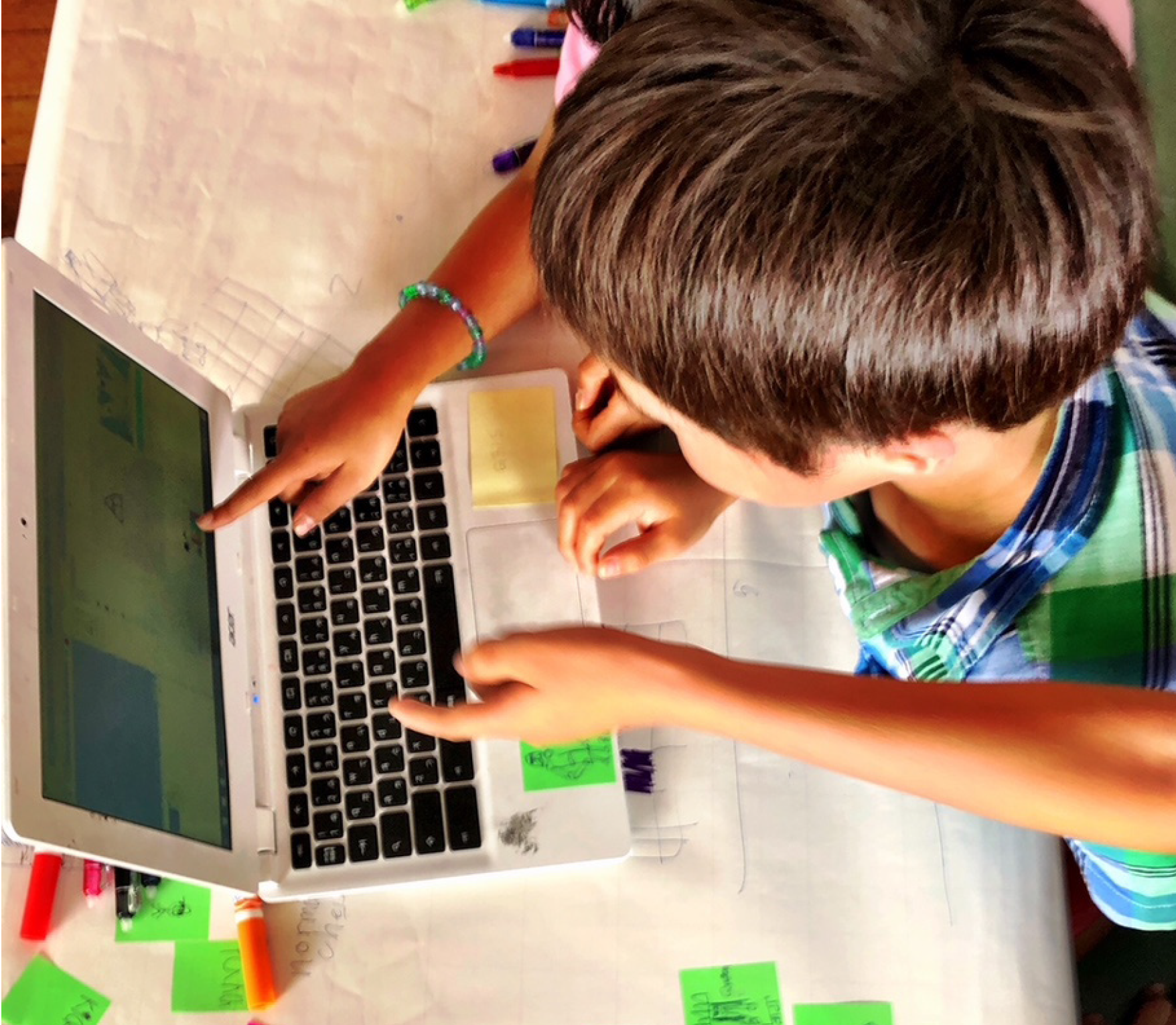
Game design involves a creative and iterative process guided by prototyping, playing and testing and then refining. Through our Social Games for Change Workshops we’re making the game design process accessible and actionable for any topic and varying participants.
The Social Games For Change Workshop introduces and encourages STEAM (Science, Technology, Engineering, Arts, Maths) skills and capabilities in the primary School classroom. This iteration of the workshop took place on Thursday the 7th June at Kyoto International Primary School, Japan. The workshop was conducted in English and delivered to a class of 18 students.
If you would like to get involved with this project, fill out the form below or reach out to project leaders via the contact info provided alongside each bio.
People
Larissa Hjorth
Distinguished Professor and Director, Design and Creative Practice
School: Enabling Capability Platforms
Larissa Hjorth is a digital ethnographer, artist, Distinguished Professor and director of the Design & Creative Practice ECP platform at RMIT University. With Professor Heather Horst, she co-founded the Digital Ethnography Research Centre (DERC). Previously, Hjorth was Deputy Dean, Research & Innovation, in the School of Media & Communication (2013−2016). Hjorth served on the inaugural Australian Research Council (ARC) Engagement & Impact Pilot study assessment panel for humanities and creative practice.
Hjorth studies the socio-cultural dimensions of mobile media and play practices in the Asia-Pacific region with an emphasis on interdisciplinary, collaborative and cross-cultural approaches. She has published a dozen co-authored books, edited over a dozen Handbooks/Companions and has over 40 journal articles.
More recently, Hjorth’s work has become concerned with how we can bring creative, social and design solutions to the growing ageing populations and, in turn, how we might consider scenarios of what it means to die well. She is also studying how our “more-than-human” companions can teach us about new media in everyday life. Hjorth’s last book, Haunting Hands (Oxford Uni Press) looked at how mobile media is being deployed in situations of grief and trauma, her previous book explored how art practice can teach us new acumen into the climate change debate.
Hjorth’s books include Haunting Hands (with Cumiskey 2017), Screen Ecologies (with Pink, Sharp & Williams 2016), Digital Ethnography (Pink et al. 2016) Mobile Media in the Asia-Pacific (2009), Games & Gaming (2010), Online@AsiaPacific (with Arnold 2013), Understanding Social Media (with Hinton 2013), and Gaming in Locative, Social and Mobile Media (with Richardson 2014).
Hugh Davies
Postdoctoral Research Fellow
School: Games
Hugh Davies is an artist, curator and researcher of games and play. His practice explores histories of media devices and cultures of games in the Asia Pacific Region. Awarded a PhD in Art, Design and Architecture from Monash University in 2014, Hugh’s studies in game cultures have been supported with fellowships from Tokyo Art and Space, M+ Museum of Visual Culture and the Hong Kong Design Trust. Hugh is currently a postdoctoral research fellow at RMIT in Melbourne, Australia.
Jacina Leong
PhD candidate
School: Media and Communication
Jacina Leong is an artist-curator and PhD candidate in the School of Media and Communications, RMIT. Her research explores critical-creative and careful curatorial approaches to social innovation practices by museums and galleries.
Over the past decade, she has worked in hybrid new media spaces, universities, national and international festivals, regional museums and galleries, libraries and schools — to vision and deliver a diverse range of trans-disciplinary engagement programs, via highly collaborative, experimental and site-responsive processes. Most recently, Jacina was curator for Robotronica, project lead and founding member of the Guerrilla Knowledge Unit, guest facilitator of the Future Innovators Summit (Ars Electronica Tokyo Initiative), and co-curator of the provocation, Curating In The Age of Automation (RMIT & Ritsumeikan University, Kyoto).
From 2012 to 2017, Jacina worked at The Cube (QUT), establishing the inaugural STEAM engagement program for school and university students, educators and pre-service teachers. This program involved key collaborations with local, national and international organisations including Ars Electronica, LEGO Education, and Brisbane City Council. She has also worked in public program development at the Ipswich Art Gallery, collaborative learning strategy in universities, gallery management at Jan Murphy Gallery, and was advisor to the inaugural Make Nice at VIVID Festival.
The Future of Museum Audiences II
Museum Engagement, Data and Older Audiences
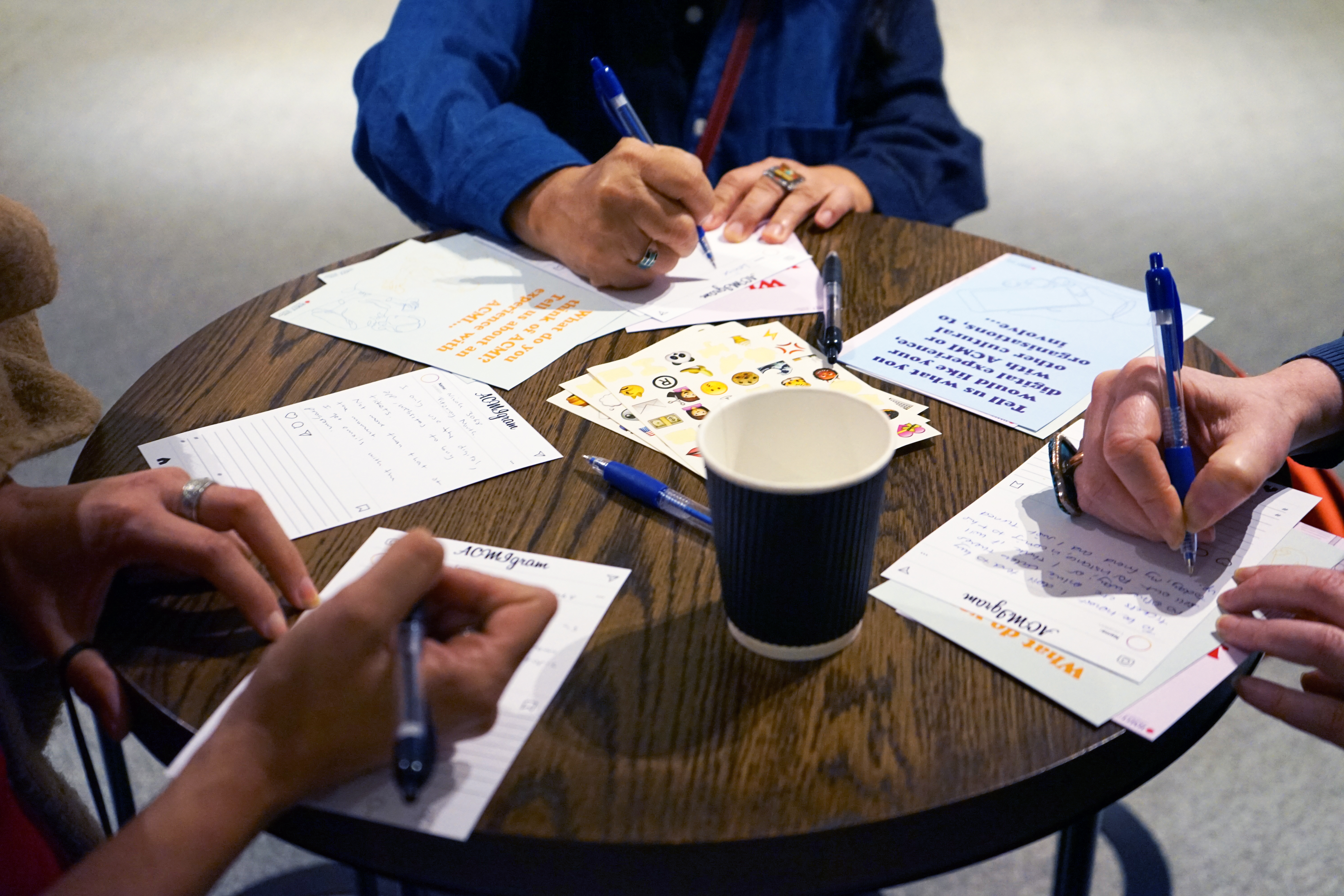
Building on Phase 1, this project specifically sought to identify and develop socially thick understandings of the (digital and non-digital) experiences and potential opportunities for older adults in the museum sector.
Using a series of postcards aimed at discursive elaboration, we invited audiences to share cups of tea and biscuits as they wrote and discussed their responses. We engaged these audiences to ethnographically and creatively reflect upon how they view the museum as an institution, as a place for belonging, and what they would like their digital (and non-digital) experiences with the museum to involve.
If you would like to get involved with this project, fill out the form below or reach out to project leaders via the contact info provided alongside each bio.
People
Larissa Hjorth
Distinguished Professor and Director, Design and Creative Practice
School: Enabling Capability Platforms
Larissa Hjorth is a digital ethnographer, artist, Distinguished Professor and director of the Design & Creative Practice ECP platform at RMIT University. With Professor Heather Horst, she co-founded the Digital Ethnography Research Centre (DERC). Previously, Hjorth was Deputy Dean, Research & Innovation, in the School of Media & Communication (2013−2016). Hjorth served on the inaugural Australian Research Council (ARC) Engagement & Impact Pilot study assessment panel for humanities and creative practice.
Hjorth studies the socio-cultural dimensions of mobile media and play practices in the Asia-Pacific region with an emphasis on interdisciplinary, collaborative and cross-cultural approaches. She has published a dozen co-authored books, edited over a dozen Handbooks/Companions and has over 40 journal articles.
More recently, Hjorth’s work has become concerned with how we can bring creative, social and design solutions to the growing ageing populations and, in turn, how we might consider scenarios of what it means to die well. She is also studying how our “more-than-human” companions can teach us about new media in everyday life. Hjorth’s last book, Haunting Hands (Oxford Uni Press) looked at how mobile media is being deployed in situations of grief and trauma, her previous book explored how art practice can teach us new acumen into the climate change debate.
Hjorth’s books include Haunting Hands (with Cumiskey 2017), Screen Ecologies (with Pink, Sharp & Williams 2016), Digital Ethnography (Pink et al. 2016) Mobile Media in the Asia-Pacific (2009), Games & Gaming (2010), Online@AsiaPacific (with Arnold 2013), Understanding Social Media (with Hinton 2013), and Gaming in Locative, Social and Mobile Media (with Richardson 2014).
Hugh Davies
Postdoctoral Research Fellow
School: Games
Hugh Davies is an artist, curator and researcher of games and play. His practice explores histories of media devices and cultures of games in the Asia Pacific Region. Awarded a PhD in Art, Design and Architecture from Monash University in 2014, Hugh’s studies in game cultures have been supported with fellowships from Tokyo Art and Space, M+ Museum of Visual Culture and the Hong Kong Design Trust. Hugh is currently a postdoctoral research fellow at RMIT in Melbourne, Australia.
Jacina Leong
PhD candidate
School: Media and Communication
Jacina Leong is an artist-curator and PhD candidate in the School of Media and Communications, RMIT. Her research explores critical-creative and careful curatorial approaches to social innovation practices by museums and galleries.
Over the past decade, she has worked in hybrid new media spaces, universities, national and international festivals, regional museums and galleries, libraries and schools — to vision and deliver a diverse range of trans-disciplinary engagement programs, via highly collaborative, experimental and site-responsive processes. Most recently, Jacina was curator for Robotronica, project lead and founding member of the Guerrilla Knowledge Unit, guest facilitator of the Future Innovators Summit (Ars Electronica Tokyo Initiative), and co-curator of the provocation, Curating In The Age of Automation (RMIT & Ritsumeikan University, Kyoto).
From 2012 to 2017, Jacina worked at The Cube (QUT), establishing the inaugural STEAM engagement program for school and university students, educators and pre-service teachers. This program involved key collaborations with local, national and international organisations including Ars Electronica, LEGO Education, and Brisbane City Council. She has also worked in public program development at the Ipswich Art Gallery, collaborative learning strategy in universities, gallery management at Jan Murphy Gallery, and was advisor to the inaugural Make Nice at VIVID Festival.
Gretchen Coombs
Post Doctoral Research Fellow
School: Design and Creative Practice
Gretchen Coombs is a Post Doctoral Research Fellow in the Design & Creative Practice Enabling Capability Platform at RMIT. She researches socially engaged art practices in the US, the UK and Australia, with a particular focus on how they are practiced in urban contexts. She’s a core member of the Cultural Value and Impact Network (CVIN) and contributes to Creative Care in the School of Art. Gretchen has a PhD in social and cultural anthropology and a MA in visual criticism: her writing uses a combination of ethnographic methods and visual analysis. She is a co-author of Creative Practice Ethnographies (Rowan & Littlefield 2019) and her monograph, The Lure of the Social: Encounters with Contemporary Artists (Intellect 2021 ) is an experimental ethnography about contemporary artists working at the intersection of art, aesthetics, and politics.
News and updates
DCP Lectures | Dr Anne Galloway
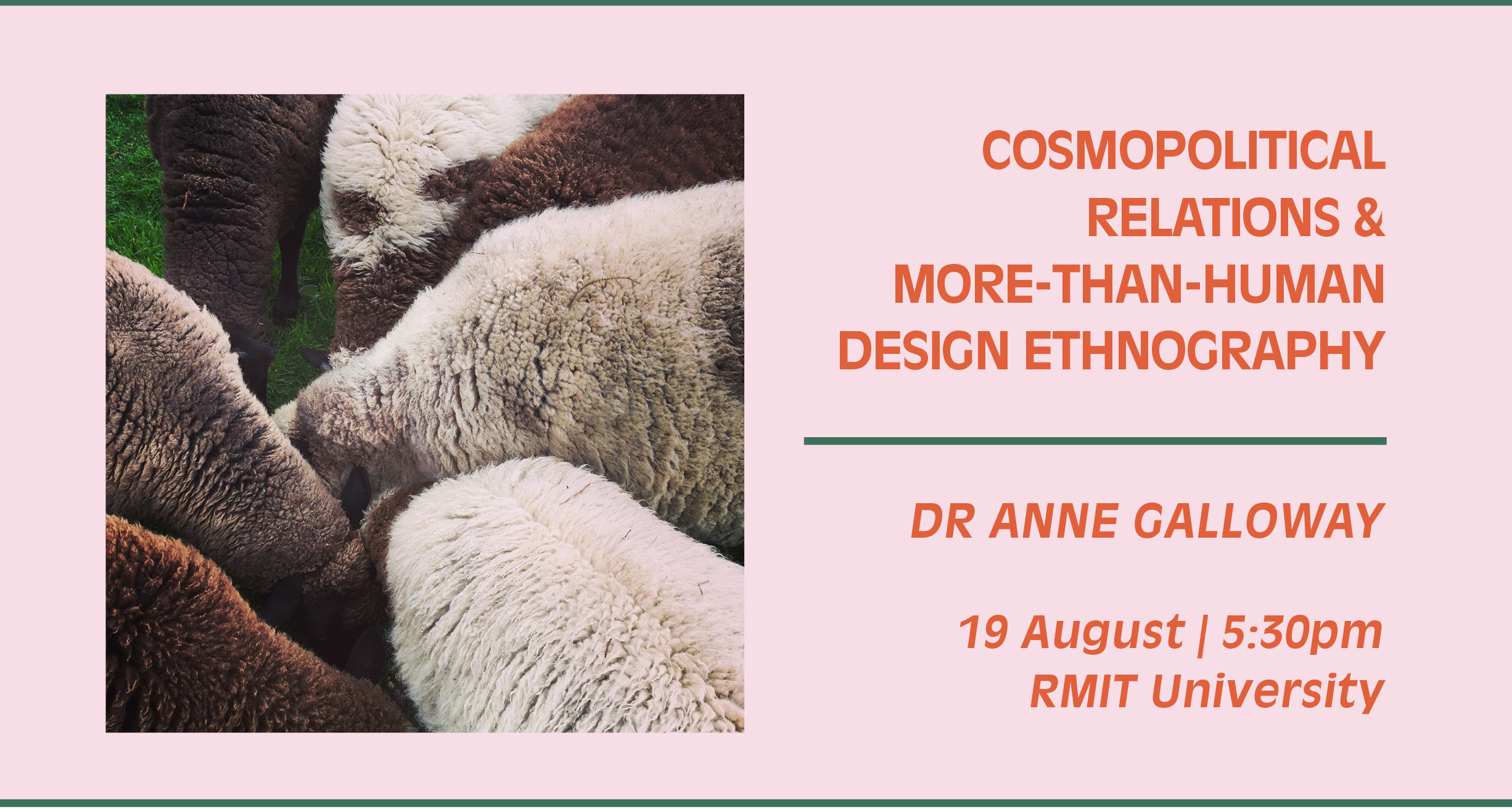
Cosmopolitical Relations & More-Than-Human Design Ethnography
Monday 19 August, 5:30 – 6:30pm
RMIT City Campus, Building 80.10.16 Read more
HDR Opportunity: Dr Anne Galloway Workshop
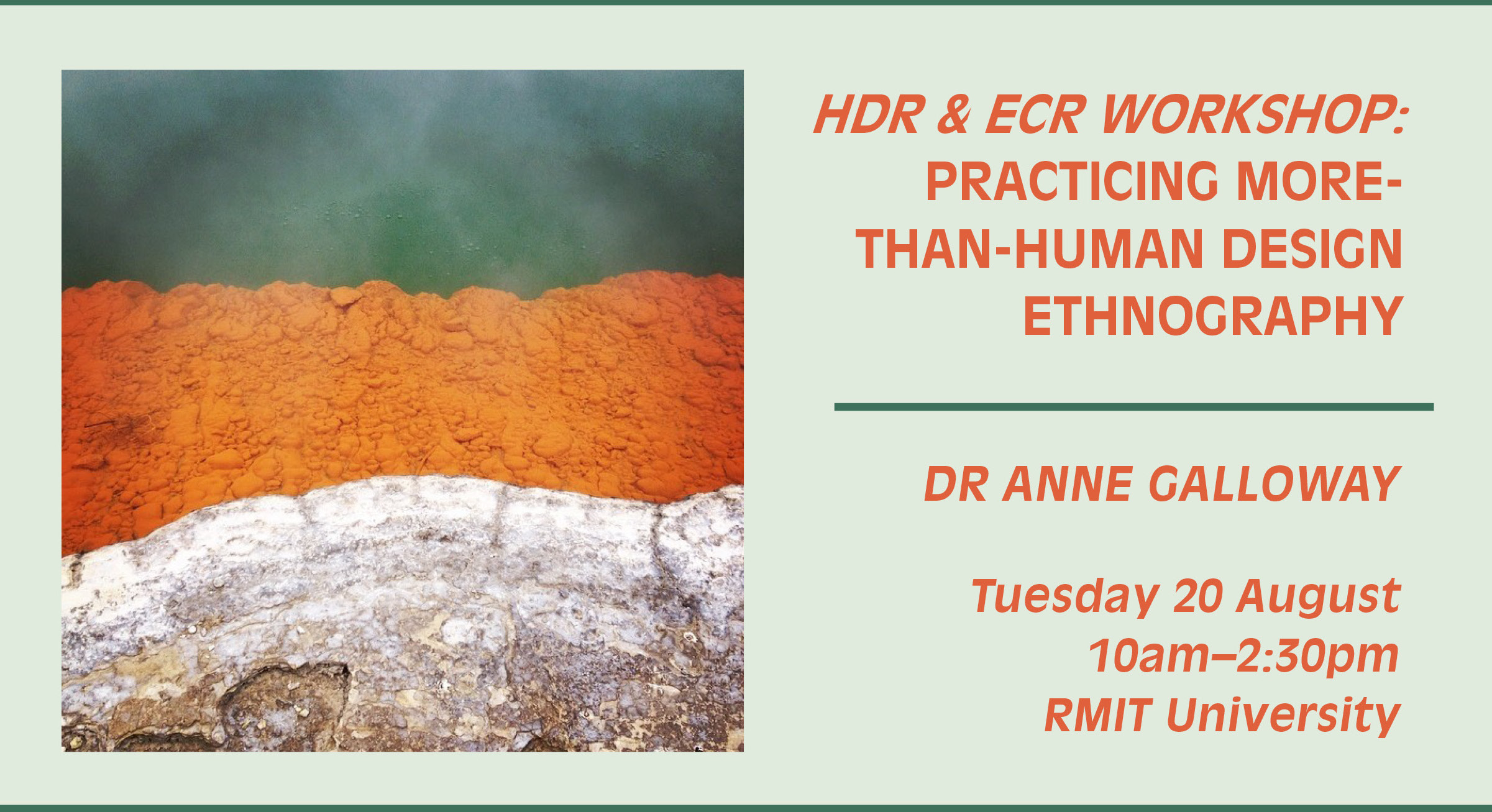
Practicing More-than-human Design Ethnography Workshop
Dr Anne Galloway, School of Design, Victoria University of Wellington, NZ
Tuesday 20 August 2019, RMIT City Campus Read more
VC FELLOW HIGHLIGHT: NATALIE HENDRY
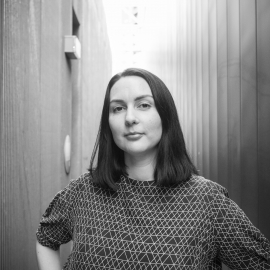
Natalie Hendry
Vice-Chancellor’s Fellow in the School of Media and Communications Read more
WrICE Program Partners with Leading Asian Literary Centre
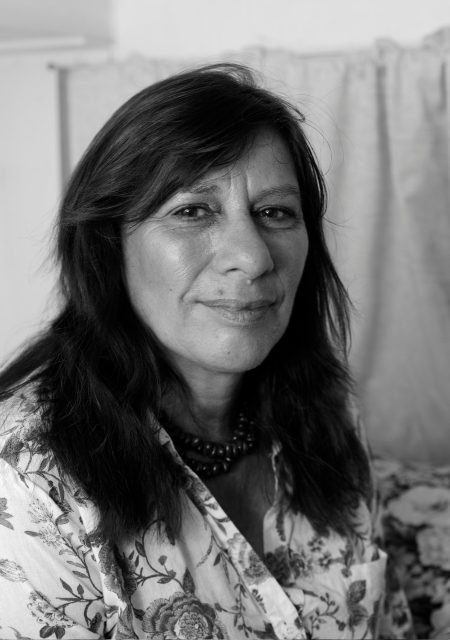
RMIT’s Writers Immersion and Cultural Exchange Program (WrICE), now in its fifth year, will partner with the Jakarta Post Writing Center in 2018. Read more
VC FELLOW HIGHLIGHT: DAVID CHESWORTH
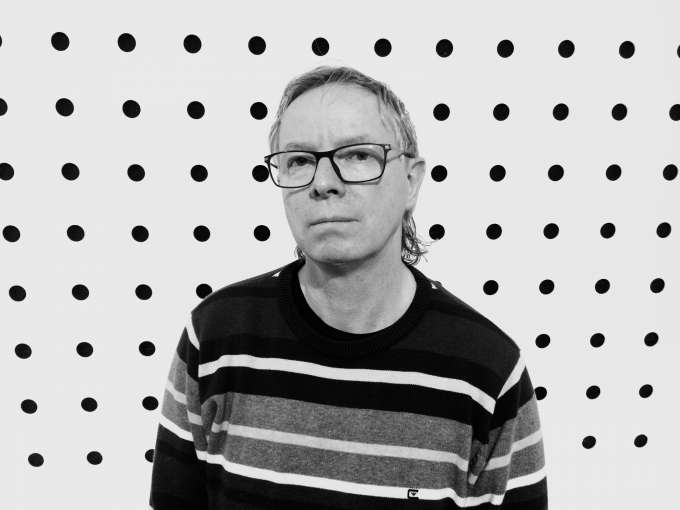
David Chesworth
Vice Chancellor’s Research Fellow in the School of Art Read more
People
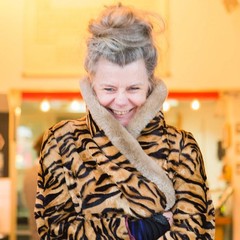
Francesca Rendle-Short is Associate Dean Writing and Publishing in the School of Media and Communication at RMIT University in Melbourne, Australia. She is co-founder of the non/fictionLab research group and co-director of WrICE (Writers Immersion and Cultural Exchange). She has a Doctor of Creative Arts from the University of Wollongong, was a recipient of an International Nonfiction Writers Fellowship to the University of Iowa, and was showcased in the Outstanding Field at Victoria College of the Arts, University of Melbourne.
Francesca Rendle-Short is an award winning novelist, memoirist and essayist. Her books include Bite Your Tongue, Imago, and The Near and The Far; also the forthcoming 100 Love Letters, and No Notes (This is writing). Her artwork is in the collection of the State Library of Queensland.
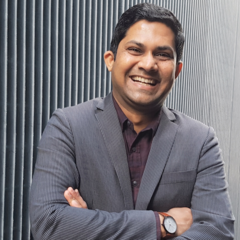
Dr Rohit Ashok Khot is the Deputy Director of the Exertion Games Lab; and Vice-Chancellor’s Postdoctoral Fellow at RMIT University, Australia. Rohit’s research embodies interdisciplinary strength and explores the amalgamation of design and technology in a creative way.
Dr Khot’s track record includes 39 scholarly publications in last 7 years, the majority of which appear in highly competitive HCI conferences and journals and include one best paper and one honorable mention (top 5%) award. Dr Khot’s research also appeared on 30+ press articles including a cover story on Mashable Australia, IEEE Spectrum and TV coverage on Channel 9 News and ABC News 24. He has won prestigious awards including IBM PhD fellowship (2014−2015), 2017 RMIT HDR Prize for Research Excellence (2017), RMIT Vice-chancellor’s Postdoctoral Research Fellowship (2017−2019) and SIGCHI Development Fund Grant (2017,2018). Dr Khot is also involved in organization and management of the Special Interest Group meetings, workshops and symposiums at leading international conferences specifically around food and play, besides serving on program committees for leading international HCI conferences, including DIS and TEI.
Rohit is passionate about playful Human-Food Interaction (HFI) and has an ambitious goal to alter the common perception that food cannot be healthy and pleasurable at the same time.
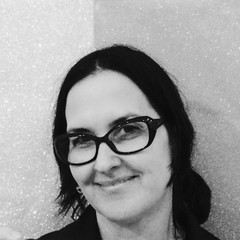
Gretchen Coombs is a Post Doctoral Research Fellow in the Design & Creative Practice Enabling Capability Platform at RMIT. She researches socially engaged art practices in the US, the UK and Australia, with a particular focus on how they are practiced in urban contexts. She’s a core member of the Cultural Value and Impact Network (CVIN) and contributes to Creative Care in the School of Art. Gretchen has a PhD in social and cultural anthropology and a MA in visual criticism: her writing uses a combination of ethnographic methods and visual analysis. She is a co-author of Creative Practice Ethnographies (Rowan & Littlefield 2019) and her monograph, The Lure of the Social: Encounters with Contemporary Artists (Intellect 2021 ) is an experimental ethnography about contemporary artists working at the intersection of art, aesthetics, and politics.
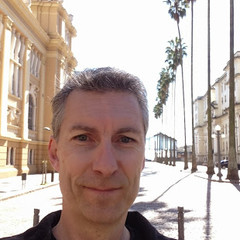
Leon de Bruin, is a Post-Doctoral Research Fellow at RMIT University. He is an educator, musician, composer and researcher. He has extensive research work and has authored over 20 peer reviewed articles and book chapters relating to meta-cognition, creativity, performing arts/artistic practices, STEM/STEAM, creativity in education and the arts. He has been the recipient of the Monash University Vice-Chancellors commendation for excellence (2017), and the ASME Callaway Award (2017) and the Monash University Postgraduate Publications Award (2016).
He works in the RMIT Creative Agency Research Lab, where he brings extensive qualitative and qualitative research experience, expertise in creativity in educational, environments, inderdisciplinarity, creativity and STEAM education, as well as vast educational experience, knowledge and connectivity to Australian Schools.
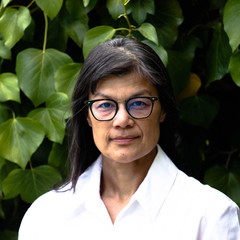
Michelle Aung Thin is a writer, former advertising copywriter and scholar. She is a Lecturer at RMIT University and teaches across the disciplines of Creative Writing and Advertising. Her most recent novel, Hasina (Allen & Unwin 2019) is about Rohingya ethnic cleansing and is published as Crossing the River Farak (Annick 2020) in Canada and the USA. Her first novel, The Monsoon Bride, (Text 2011) is set in colonial Burma and was shortlisted for the Victorian Premier’s Literary awards as an unpublished manuscript. Her writing has been included on VCE reading lists and republished on the SBS website. In 2017, she was a National Library of Australia Creative Arts Fellow (supported by the Eva Kollsman and Ray Mathew Trust) and in 2014, the first Asialink writer in residence to Myanmar (funded by Arts Victoria).
Michelle was a co-director of the non/fictionLab in 2018 and 2019, is currently a co-director of WrICE, Writers Immersion and Cultural Exchange and has served on the board of The Lifted Brow. Her research interests range from the cultural history of southeast Asian hybrid identities to contemporary creative practices in Myanmar and the ethics of writing about difference. Current research includes a project addressing diversity in publishing and a pilot study that aims to reduce sexist advertising by educating the next generation of advertising creatives about harmful stereotypes.
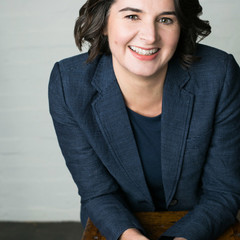
Dr Julienne van Loon is a Vice Chancellor’s Senior Research Fellow with non/fictionLab, and a leading Australian novelist and essayist. Her first novel, Road Story, won The Australian/Vogel’s award in 2005 and was shortlisted for the WA Premier’s Award for Fiction and the Commonwealth Writers’ Prize Best First Book Award (Asia and Pacific). She has held residencies at various international arts organisations and universities, including the University of Iowa, where she was sponsored by the Paul and Hauling Engle Fund to take part in the International Writing Program in 2017. van Loon co-edits the leading scholarly Creative Writing journal TEXT, and is a peer-assessor for the Australia Council for the Arts. Her forthcoming essay collection, The Thinking Woman, includes interviews with key women thinkers from the Australia, Europe and the United States. Her scholarly research interests include the role of play in research and creative practice.
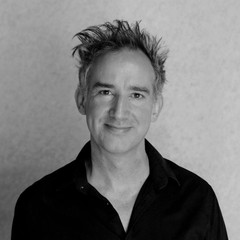
Hugh Davies is an artist, curator and researcher of games and play. His practice explores histories of media devices and cultures of games in the Asia Pacific Region. Awarded a PhD in Art, Design and Architecture from Monash University in 2014, Hugh’s studies in game cultures have been supported with fellowships from Tokyo Art and Space, M+ Museum of Visual Culture and the Hong Kong Design Trust. Hugh is currently a postdoctoral research fellow at RMIT in Melbourne, Australia.
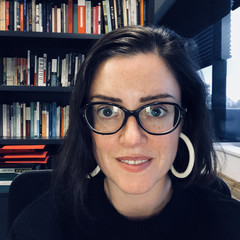
Jenny Kennedy is a Postdoctoral Research Fellow in Media and Communication at RMIT University, Melbourne. Her research interests cover media practices in everyday life, social discourses around technology use and material culture, especially in domestic contexts. She is a core member of the Technology, Communication and Policy Lab in DERC.
She is currently working on projects around digital inclusion, and AI and automation in home environments.
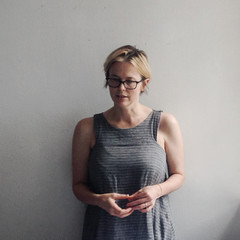
Lucinda Strahan is a writer and researcher of expanded nonfiction. Lucinda’s own expanded writing practice spans journalism and arts criticism, auto-ethnographic and personal essaying, editing and publishing, and exploratory literary-visual methods. She is the currently Writer in Residence at Linden New Art, St Kilda and in 2017 was Writer in Residence Residence at Grey Projects, Singapore as part of her ongoing interest in interdisciplinary critical/creative writing practices. Lucinda is a Lecturer in the Professional Communication program in the School of Media and Communication.
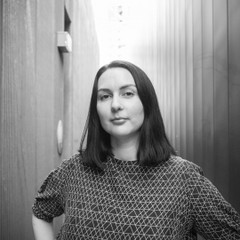
Natalie Hendry is a Vice Chancellor’s Postdoctoral Fellow in the School of Media and Communications. Her research explores everyday social media and digital technology practices in the context of critical approaches to education, mental health, media, wellbeing, youth studies and policy. This brings together her experience prior to academia, working in community education, secondary schools and hospital settings, and consulting for health organisations and industry. Using digital ethnography and creative workshop methods, her postdoctoral research explores emerging and potential online opportunities to enhance digital outreach and media-based support for young people whose parents or adult family members are experiencing mental ill-health.
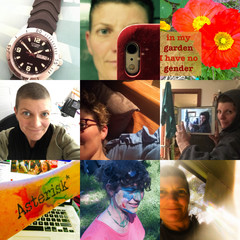
Son Vivienne is a Post-Doctoral Researcher at Creative Agency and the Digital Ethnography Research Centre at RMIT. Their principal expertise is digital self-representation, online activism, queer identity, and rhetorical strategies/feminist practices for speaking and listening across difference. Son is also involved in community development and arts as an activist, workshop facilitator and media-maker. Son is author of Digital Identity and Everyday Activism: Sharing Private Stories with Networked Publics (Palgrave Macmillan) and co-author/co-editor of Negotiating Digital Citizenship: Control, Contest, Culture (Rowman & Littlefield).
Son curates several collective storytelling websites for queer and gender-diverse communities and has over twenty years of multi-media production and distribution experience. As an award winning writer/director/producer of drama and documentaries, they tackled subjects as diverse as youth suicide; drug cultures in Vietnamese communities; and lesbian personal columns. Their film work includes multi-lingual (Vietnamese-English and Adnyamathanha-English) and multi-modal (animation, micro-docs, digital storytelling and interactive web-platforms) projects that reflect their comparative, cross-cultural and critical approaches to communication and storytelling.
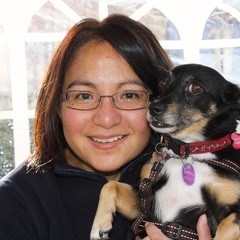
Catherine Gomes is an Associate Professor in RMIT University’s School of Media and Communication. Catherine is an ethnographer whose work contributes to the understanding of the evolving migration, mobility and digital media nexus. As a migration and mobility scholar, Catherine specialises on the social, cultural and communication spaces of transient migrants, especially international students, their wellbeing, their social groups and their digital engagements. Catherine’s work covers the themes of identity, ethnicity, race, memory and gender. She is a specialist on the Asia-Pacific with Australia and Singapore being significant fieldwork sites. Catherine has experience in mixed methods and interdisciplinary research.
Catherine’s work on transient migration and digital technology is advancing work on migration and mobility because of the transient-digital nexus she pioneers. Moreover, as founding editor of Transitions: Journal of Transient Migration Migration (Intellect), editor of the Culture, Media and Communication in Migrant Societies book series (Amsterdam University Press) and lab leader of the Migration and Digital Media Research Lab housed in the Digital Ethnography Research Centre (DERC), Catherine facilitates intellectual discussions with the aim of generating practical outcomes to address and assist policymakers and stakeholders interested in transient migration and international mobility.

Daniel Palmer is Associate Dean of Research and Innovation in the School of Art at RMIT University.
Daniel Palmer’s research and professional practice focuses on contemporary art and cultural theory, with a particular emphasis on photography and digital media. Prior to joining RMIT in 2018, Palmer was Associate Dean of Graduate Research and Associate Professor in the Art History & Theory Program at Monash Art, Design & Architecture. He also has a long association with the Centre for Contemporary Photography in Melbourne, first as a curator and later on the board of management.
Palmer’s book publications include Photography and Collaboration: From Conceptual Art to Crowdsourcing (Bloomsbury 2017); Digital Light (Open Humanities Press, 2015), edited with Sean Cubitt and Nathaniel Tkacz; The Culture of Photography in Public Space (Intellect 2015), edited with Anne Marsh and Melissa Miles; Twelve Australian Photo Artists (Piper Press, 2009), co-authored with Blair French; and Photogenic (Centre for Contemporary Photography, 2005). His scholarly writings on photography and contemporary art have appeared in journals such as Photographies, Philosophy of Photography, Angelaki, Reading Room and the Australian and New Zealand Journal of Art. Palmer has also published over sixty catalogue essays and fifty art reviews since 1997, in art magazines including Art and Australia, Photofile and Frieze.
Palmer has been the recipient of various awards and grants, and has been Chief Investigator on multiple ARC projects, including the ARC Discovery Project ‘Genealogies of Digital Light’ (2008 – 11) with Sean Cubitt and Les Walkling; an ARC Linkage Project ‘Photography as a Crime’ (2009 – 2012) with Anne Marsh, Melissa Miles, Mark Davison and the Centre for Contemporary Photography; and the ARC Discovery Project ‘Curating Photography in the Age of Photosharing’; (2015 – 2017) with Martyn Jolly. Palmer is currently a researcher on the ARC Discovery Project ‘Digital Photography: Mediation, Memory and Visual Communication’ (2020 – 2022) with Scott McQuire, Nikos Papastergiadis, Sean Cubitt and Celia Lury.
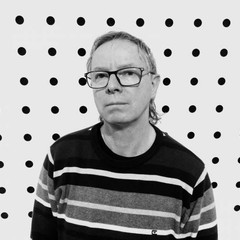
David Chesworth is a Vice-Chancellor’s Fellow at RMIT, based in the School of Art and DCP Research Platform. He is a cross-disciplinary artist, composer and researcher with an experimental background, He has created investigative artworks in visual art, music, screen-based media, performance and installation, and across the wider cultural sector, including major museums and artist run initiatives and the public domain. Recent artworks created with collaborator Sonia Leber were exhibited in the main programs of the Venice and Sydney Biennale’s and the satellite program of Moscow Biennale. His sound works have been presented internationally, including Brooklyn Academy of Music’s Next Wave Festival and The Bang on a Can Marathon in New York, and Ars Electronica in Austria (Prix Ars Electronica Honorary Mention).
His recent award-winning PhD investigation into ontologies of listening within visual arts practice interrogated artworks at Dia:Beacon in upstate New York. This led to a practice-based research project as an Associate Investigator with the ARC Centre of Excellence for Australian Biodiversity and Heritage (CABAH) where he investigated, with Earth scientists and Indigenous traditional owners, different understandings of the world.
His postdoctoral research will involve the creation of three artworks that investigate sound archives: a collection of early Indigenous recordings, an experimental music archive, and a collection of recently unearthed séance tapes, this will be supplemented with a range of written research outputs. David is also co-creating a large-scale research artwork called What Listening Knows for exhibition in the UK later in the year.
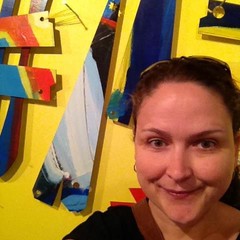
With a twenty-five-year history of art and social justice practice Australia and Canada, Marnie’s research sits at the intersection of socially engaged art, community-based research methodologies and the politics of cultural measurement. Marnie is currently focused on a series of creative cartographies registering emotion in public space; expanded curation projects on the aesthetics and politics of food; and a book project The Social Life of Artist Residencies: connecting with people and place not your own. Marnie is Senior Research Fellow at the School of Art following the prestigious award of Vice Chancellor’s Postdoctoral Research Fellow at RMIT University. Marnie co-leads the Cultural Value Impact Network and is acting Leader for CAST Contemporary Art and Social Transformation research group.
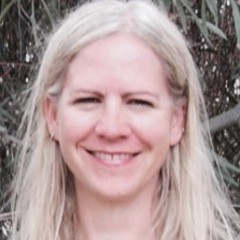
Professor Ingrid Richardson has been teaching, supervising and researching in the fields of digital media, mobile media and games for over twenty years. She has a broad interest in the human-technology relation and has published widely on the phenomenology of games and mobile media, digital ethnography and innovative research methods, the relation between technology use and wellbeing, and the cultural effects of urban screens, wearable technologies, virtual and augmented reality, remix culture and web-based content creation and distribution. Ingrid has led or co-led 14 funded research projects, the most recent being an ARC DP [Games of Being Mobile] with Larissa Hjorth. She is contributing co-editor of Studying Mobile Media (Routledge, 2011) and co-author of Gaming in Social, Locative and Mobile Media (Palgrave, 2014), Ambient Play (MIT, 2020), Understanding Games and Game Cultures (Sage, 2020), Exploring Minecraft: Ethnographies of Play and Creativity (Palgrave, forthcoming), and Mobile Media and the Urban Night (Palgrave, forthcoming). Ingrid brings ten years’ experience in university-level HDR management and during this time has actively championed and supported creative methods and practice-led postgraduate research. Over the past five years she has also developed a passion for teaching critical web literacy skills to undergraduate students across all disciplines.
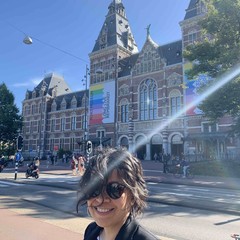
Jacinthe Flore is a Vice-Chancellor’s Postdoctoral Research Fellow in the Social and Global Studies Centre at RMIT University. She is an interdisciplinary scholar whose research lies at the intersections of technology, health and society. With a particular interest in digital mental health, Jacinthe’s research examines the social and policy implications of innovations such as artificial intelligence, apps, wearables and fourth generation pharmaceuticals, and their circulations in people’s everyday lives.
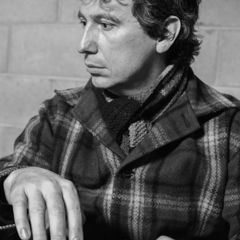
Dr Jordan Lacey is a transdisciplinary creative practice researcher and DECRA Fellow in the School of Design at RMIT University. He is the author of Sonic Rupture: a practice-led approach to urban soundscape design (Bloomsbury 2016), and various articles, which explore the role of sound installations in transforming urban life. Originally a musician and sound-artist, Jordan has become increasingly focused on the urban environment as evolving into sites-of-encounter that might exceed the typical day-to-day functions of city life. He has produced numerous sound art installations, funded by government and industry partners, that seek to influence approaches to urban design. Recently, he has become interested in posthuman critical theory as a means to question the meaning of being human in a changing world, and the ways in which sonic practices might contribute to this conversation.
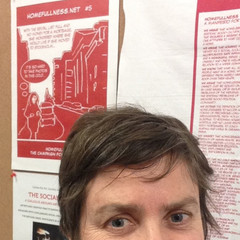
Keely Macarow is Coordinator of Postgraduate Research in the School of Art at RMIT. Keely’s research is focused on socially engaged art and the nexus between creative arts, social justice, health and wellbeing, and social and natural science. Currently, Keely is a member of The Untitled (a collective of artists, urban and graphic designers, architects and housing researchers based in Melbourne and Stockholm) who produce creative works, publications and interventions in Australia and Sweden to advocate for Homefullness (rather than homelessness). Her film, video and exhibition projects have been presented in Australia, the UK, the US, Germany, Belgium, Austria, Sweden, Hungary, France, Scotland and Denmark.
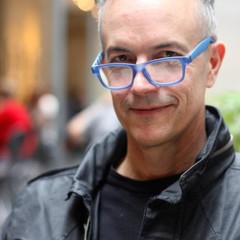
David Carlin is a writer, creative artist and scholar. His books include The Abyssinian Contortionist, Our Father Who Wasn’t There, and (forthcoming) The After-Normal for Rose Metal Press, and 100 Atmospheres: Studies in Scale and Wonder for Open Humanities Press. David’s essays, plays, radio features, exhibitions, documentary and short films have won awards and featured at numerous international festivals. He co-edited a cross-cultural anthology of Asian and Australian writers, The Near and the Far (with Francesca Rendle-Short, Scribe 2016) and Performing Digital (Routledge, 2015), about the Circus Oz Living Archive project he led. Co-President of the NonfictioNOW Conference, the world’s leading conference in literary nonfiction, David is a Professor at RMIT University, Australia, where he co-directs WrICE and non/fictionLab.
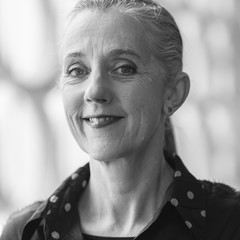
Since 1991, Associate Professor Suzie Attiwill’s freelance practice has involved exhibition design, curatorial work and writing on interdisciplinary projects in Australia and overseas. Her practice poses questions of interior and interiority in relation to contemporary conditions of living, inhabitation, subjectivity, pedagogy and creative practice. Research is conducted through a practice of designing with a curatorial inflection attending to arrangements (and re-arrangements) of spatial, temporal and material relations. Projects include: urban + interior – a collaborative publication project bringing together an editorial team situated in Milan, Madrid and Melbourne; beyond building with Gregory Nicolau (Australian Childhood Trauma Group); Abacus Learning Centre – for children on the autism spectrum; and a series of curatorial experiments in ecologies of learning – physical, social and mental. Suzie is recognised internationally for her contribution to the discipline of interior design including workshop intensives: Radical Learning, Milan International Architecture Week; and Urban Interiorities in Nicosia, Cyprus; texts: ‘interiorizt’, 2014; and ‘Urban and Interior: techniques for an urban interiorist’, 2011. Artistic director of Craft Victoria (1996−99); board member/chair, West Space (2006−10); chair, IDEA (Interior Design/Interior Architecture Educators Association, 2006-12); executive board member, International Federation of Interior Architects/Designers (2020−21).
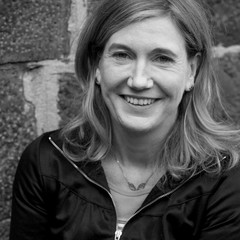
Dr Tania Lewis is the Director of the Digital Ethnography Research Centre and is a Professor in the School of Media and Communication at RMIT University. An ex-medical practitioner, her research critically engages with the politics of lifestyle, sustainability and consumption, and with global media and digital cultures.
Lewis has published over 50 journal articles and chapters and is the author of Smart Living: Lifestyle Media and Popular Expertise, and co-author of Telemodernities: Television and Transforming Lives in Asia, and Digital Ethnography: Principles and Practices. She is also the editor and co-editor of four collections with Routledge including Ethical Consumption: A Critical Introduction and Green Asia: Ecocultures, Sustainable Lifestyles and Ethical Consumption. She is currently writing a book for Bloomsbury Press entitled Digital Food: From Paddock to Platform.
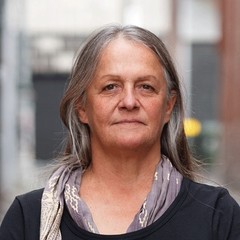
Dr Couzens is Gunditjmara from the Western Districts of Victoria. She acknowledges her ancestors and elders who guide her work.
Dr Couzens has worked in Aboriginal community affairs for almost 40 years. Her contributions in the reclamation, regeneration and revitalisation of cultural knowledge and practice extend across the ‘arts and creative cultural expression’ spectrum including language revitalisation, ceremony, community arts, public art, visual and performing arts, and writing. She is a Senior Knowledge Custodian for Possum Skin Cloak Story and Language Reclamation and Revival in her Keerray Woorroong Mother Tongue.
Vicki is employed at RMIT as a Vice Chancellors Indigenous Research Fellow developing her Project ‘watnanda koong meerreeng , tyama-ngan malayeetoo (together body and country, we know long time)’ The key objective of this Project is to produce model/s, pathways and resources for continuing the reinvigoration of Aboriginal Ways of Knowing Being and Doing with a special focus on language revitalisation.
